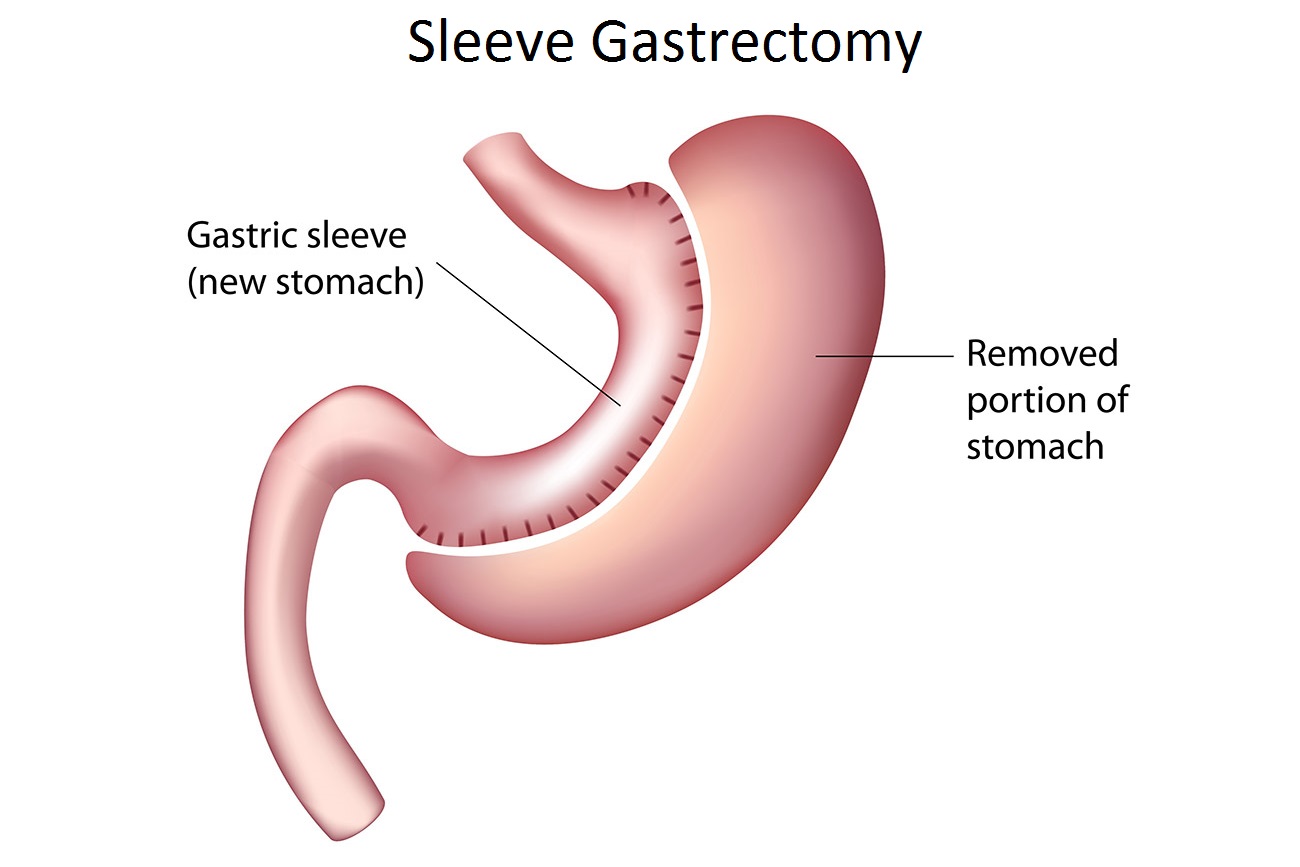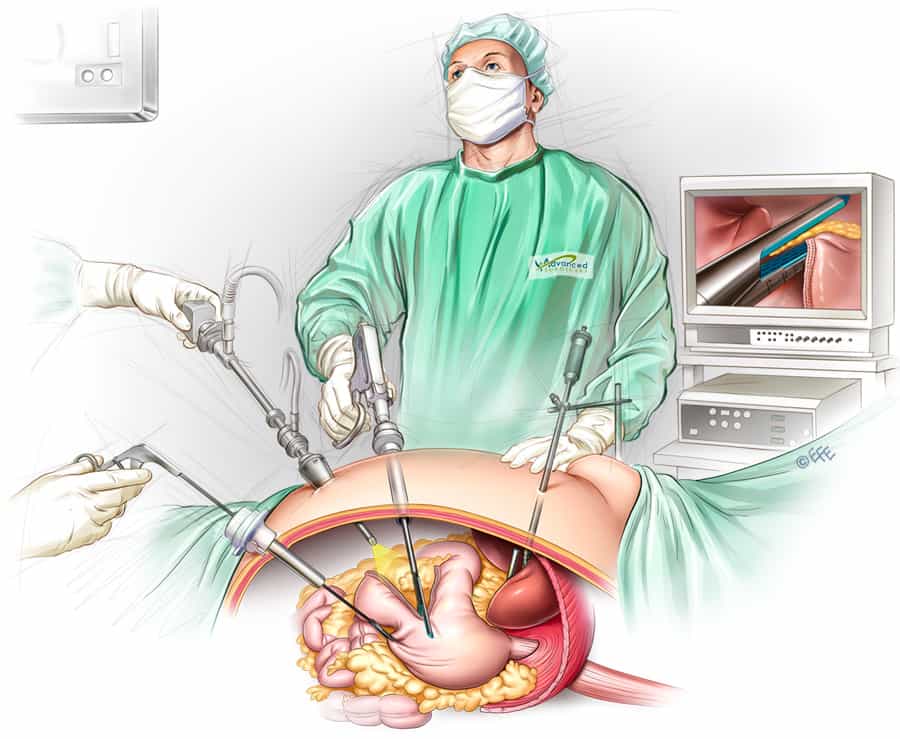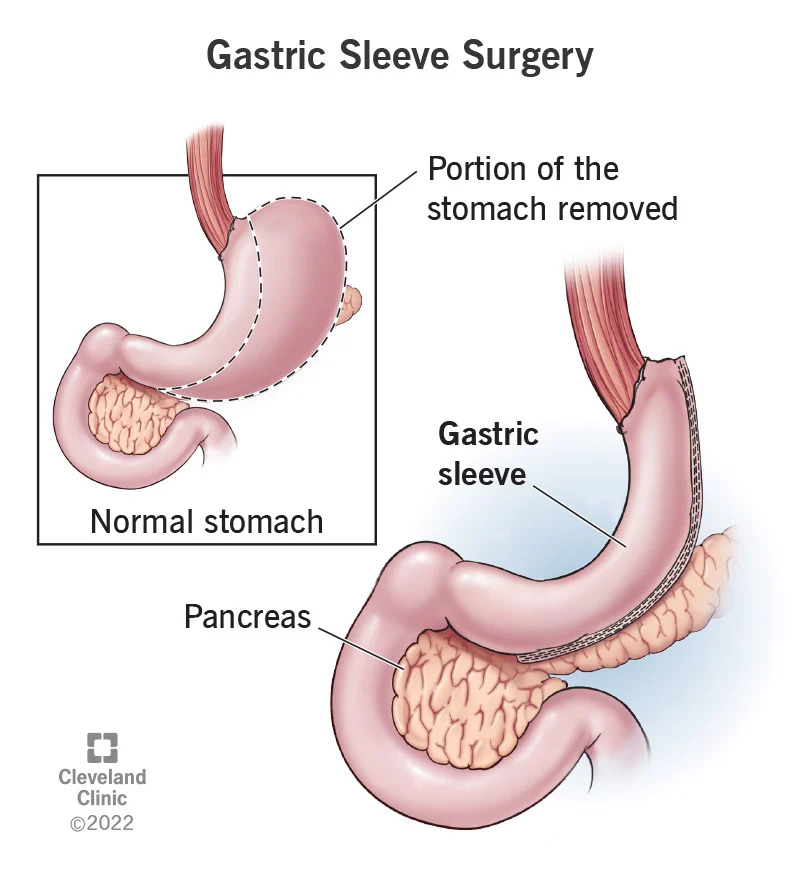Discover the Life-Changing Benefits of Gastric Sleeve Surgery: Achieve Lasting Weight Loss and Improve Your Health with Expert Surgical Care

Gastric sleeve surgery is a type of bariatric surgery that permanently removes a large portion of the stomach, decreasing its size by about 80%. The result is a sleeve- or tube-shaped stomach about the size of a banana. Since its inception, sleeve gastrectomy has gained popularity for its simplicity and effectiveness. It’s not just a surgery, but a tool to help you achieve sustained weight loss by limiting food intake and reducing hunger hormone levels.
Ideal candidates for this procedure are typically those with a Body Mass Index (BMI) of 40 or higher, or those with a BMI of 35 and above who also have weight-related health issues like type 2 diabetes or high blood pressure.


Preparation for gastric sleeve surgery is a multi-step process that begins with a comprehensive consultation with a bariatric surgeon. During this phase, you’ll undergo several medical evaluations and tests to ensure you’re a suitable candidate for the surgery. Lifestyle modifications are crucial at this stage. You may be asked to start a physical activity regimen and to stop smoking or drinking alcohol. Diet changes, such as reducing calorie intake, are often recommended to shrink the liver and reduce surgical risks.

On the day of surgery, after anesthesia is administered, the surgeon makes a few small incisions in the abdomen. Using a laparoscope, a portion of the stomach is then removed, leaving a narrow gastric “sleeve.” No bypass of the intestines is involved, which simplifies the procedure and minimizes certain risks. The entire process typically takes one to two hours, and most patients can expect a hospital stay of one to two days for monitoring.
Patients choosing gastric sleeve surgery can look forward to a variety of benefits beyond weight loss. The procedure has been shown to improve or resolve conditions such as type 2 diabetes, high blood pressure, sleep apnea, and high cholesterol. It also paves the way for enhanced mobility and a more active lifestyle, contributing to an overall better quality of life.
Substantial loss of excess weight, typically 60% within the first year and a half.
High potential for type 2 diabetes remission
Enhanced heart health and reduced risk of related diseases.
Alleviation of depression symptoms and improved self-esteem.
Major improvements in sleep quality and reduction of apnea episodes.
Relief from chronic joint pain due to weight loss.
As with any major surgery, gastric sleeve surgery comes with potential risks and complications. Immediate postoperative risks include infection, adverse reactions to anesthesia, and blood clots, while long-term concerns might involve nutritional deficiencies and acid reflux. A thorough discussion with your surgeon about these risks is essential to making an informed decision.
The procedure involves the permanent removal of a stomach portion, making it an irreversible choice.
Weight loss might not be as pronounced as with surgeries that include intestinal bypass, possibly requiring more effort for significant results
Post-surgery, the body may still comfortably process high-calorie foods, potentially slowing the weight loss journey.
Common surgical risks such as excessive bleeding, infections, and adverse reactions to anesthesia are present, alongside specific risks like blood clots and respiratory complications.
Long-term issues may include digestive tract blockages, hernias, acid reflux, unpredictable blood sugar levels, nutritional deficiencies, and persistent vomiting.
It's possible that this procedure may not be covered by insurance policies if deemed experimental, leading to significant personal expense.

Recovery from gastric sleeve surgery involves a staged approach to eating, starting with liquids and gradually moving to pureed, then soft, and finally solid foods. Pain and discomfort can be managed with medications, and most patients return to normal activities within a few weeks. Regular follow-up appointments are vital to monitor your progress and address any concerns.
The sleeve gastrectomy, also called a vertical sleeve gastrectomy or gastric sleeve, is a procedure where about 80% of the stomach is removed, leaving a sleeve-shaped stomach. The procedure is typically performed laparoscopically, through a number of small incisions on the abdomen, under a general anaesthetic. The surgery takes around 1 to 1.5 hours.
The sleeve gastrectomy is a restrictive procedure. By restricting the size of your stomach, the amount you can eat is limited. Additionally, the hunger-producing hormone, Ghrelin, is mainly created in the stomach. After surgery, the Ghrelin drops significantly, which reduces your food craving.
Studies have found that at one year after surgery, patients have lost 68% of their excess weight. At five years after surgery, patients have lost 53.2% of their excess weight. These amounts are averages, and the amount of weight loss varies from individual to individual.
Source: M. Golzarand et al. “Surg. Endos.”, 2017.
Typically 1 to 2 nights. You may require longer if you have a complex health history.
The sleeve gastrectomy has a low complication rate, however every surgery has risks.
Short term risks can include:
Long term risks can include:
Though it may seem daunting, the benefits of the surgery often outweigh the risks. Both risks and benefits should be assessed when considering surgery.
Information on surgery costs can be found on the Our Costs page.